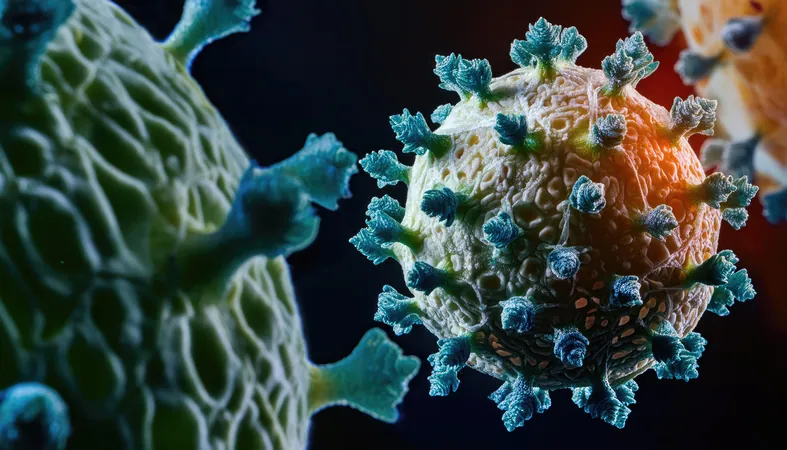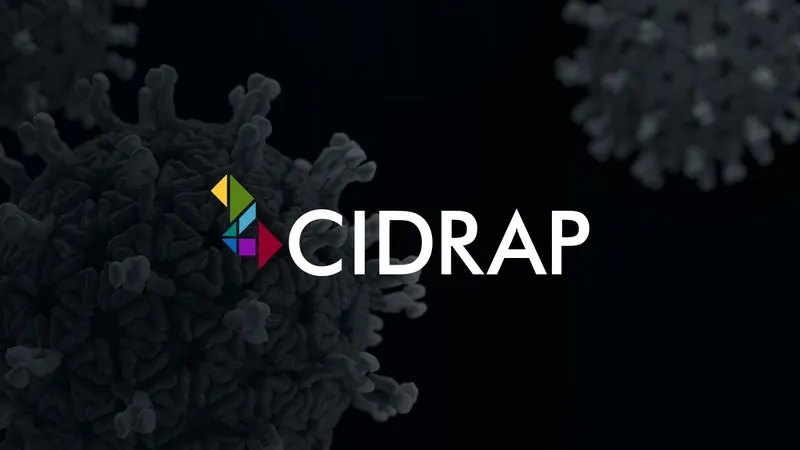
Shocking Findings: Adult RSV-ARI Linked to Higher Death Risk and Soaring Health Care Costs
2025-05-01
Author: Daniel
A Staggering Revelation from the ESCMID Global 2025 Conference
Recent revelations from the European Society of Clinical Microbiology and Infectious Diseases (ESCMID) Global 2025 conference have set off alarm bells: adults infected with respiratory syncytial virus-associated acute respiratory infection (RSV-ARI) face a significantly higher risk of death compared to the general population.
What is RSV-ARI?
RSV-ARI is a serious respiratory illness predominantly affecting adults, leading to dire complications such as pneumonia and chronic respiratory diseases. According to the CDC, this illness is tracked via emergency department visits and encompasses a range of respiratory issues, from mild colds to severe cases like influenza and COVID-19. Unlike previous metrics, ARI captures illnesses without fever, providing a fuller picture of respiratory health trends.
A Deep Dive into the Data
A groundbreaking Danish study evaluated data from over 5,000 adults diagnosed with RSV-ARI between 2011 and 2022. This study aimed to unveil the long-term health and economic impact of this often-overlooked virus. The results were astounding: compared to 15,867 matched individuals from the general population, adults with RSV-ARI experienced exceptionally poor health outcomes. They were 3.1 times more likely to suffer chronic obstructive pulmonary disease (COPD) exacerbations and faced 4.6 times more asthma flare-ups in just a year.
The Lifesaving Message from Researchers
Lead researcher Maria João Fonseca underscored the striking and lasting effects of RSV-ARI: "Even after the acute phase, patients continue to experience worse health than those without RSV-ARI. This underscores the severe, long-term effects of the virus." Hospitalization rates for RSV-ARI patients were more than double that of the control group—57% versus 28%—with ICU admissions nearly quadrupling.
A Financial Burden Unveiled
The financial implications are equally staggering, with healthcare costs for RSV-ARI patients doubling when compared to the control group. Fonseca remarked that exacerbations of COPD and asthma were the most frequent adverse outcomes, highlighting the need for targeted attention to patients with these underlying conditions.
Alarming Statistics and Critical Recommendations
The study also revealed that adults with RSV-ARI are at a 2.7-fold increased risk of death within one year. This emphasizes the often-underestimated burden of RSV-ARI, particularly for those with pre-existing conditions.
Given these findings, vaccination is critical. The CDC currently recommends a single dose of FDA-approved RSV vaccines—such as RSVPreF3 (Arexvy; GSK) and RSVpreF (Abrysvo; Pfizer)—for all adults aged 75 and older, as well as those aged 60 to 74 years at increased risk.
A Call to Action for Future Research
Looking forward, Fonseca hopes this study inspires more research into the societal impact of RSV, particularly among high-risk groups. Such inquiries could shape preventive strategies and ensure that timely interventions reach those who need them most.



 Brasil (PT)
Brasil (PT)
 Canada (EN)
Canada (EN)
 Chile (ES)
Chile (ES)
 Česko (CS)
Česko (CS)
 대한민국 (KO)
대한민국 (KO)
 España (ES)
España (ES)
 France (FR)
France (FR)
 Hong Kong (EN)
Hong Kong (EN)
 Italia (IT)
Italia (IT)
 日本 (JA)
日本 (JA)
 Magyarország (HU)
Magyarország (HU)
 Norge (NO)
Norge (NO)
 Polska (PL)
Polska (PL)
 Schweiz (DE)
Schweiz (DE)
 Singapore (EN)
Singapore (EN)
 Sverige (SV)
Sverige (SV)
 Suomi (FI)
Suomi (FI)
 Türkiye (TR)
Türkiye (TR)
 الإمارات العربية المتحدة (AR)
الإمارات العربية المتحدة (AR)